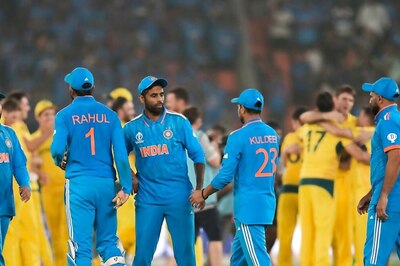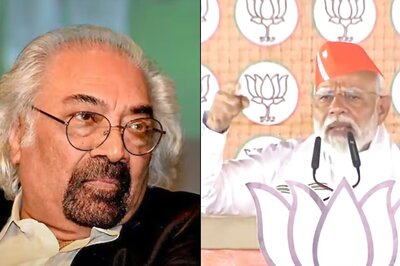
views
New Delhi: India and Japan carried out a comprehensive review of the security situation in the Indo-Pacific region, including the latest developments in the South China Sea, during Defence Minister Rajnath Singh's two-day visit to Tokyo.
Singh held wide-ranging talks with Japanese counterpart Takeshi Iwaya on Monday during which both sides explored the possibility of cooperation in third countries in the Indo-Pacific region through various initiatives, officials said.
A joint statement issued on Tuesday said the two ministers affirmed their intention to hold the first foreign and defence ministerial dialogue under the two-plus-two framework ahead of the Indo-Japan annual summit later this year. It said the Japan-India-US trilateral maritime exercise "Malabar" will be held from late September to early October this year.
Both sides also expressed resolve to continue the Japan India-US trilateral mine-countermeasures exercise (MINEX). The MINEX had taken place in July. The statement said the ministers deliberated on the situation in Indo-Pacific and recognised that peace and stability in the region are crucial for the entire world.
"They had a frank exchange of views on the current security situation in the Indo-Pacific region, including developments on the Korean Peninsula and in the South China Sea," it said.
South China sea witnessed rising tension since July after China deployed a large number of survey vessels in Vietnamese waters, including around areas where India's ONGC has oil exploration projects.
China claims sovereignty over all of South China Sea, a huge source of hydrocarbons. However, several ASEAN member countries, including Vietnam, Philippines and Brunei, have counter claims.
The US has been pushing for a bigger role for India in the Indo-Pacific which is seen by many countries as an effort to contain China's growing clout in the region.
In November 2017, India, the US, Australia and Japan gave shape to the long-pending "Quad" Coalition to develop a new strategy to keep the critical sea routes in the Indo-Pacific free of any influence.
The joint statement said both sides explored possibility of cooperation in third countries in the Indo-Pacific region through various initiatives that would further ensure peace and stability.
The two sides also reviewed overall bilateral defence ties and underlined the importance of increasing cooperation between the two air forces.
"They further underlined the importance of increasing the scope and depth of the air force to air force engagements including fighter aircraft cooperation," it said. It said the two ministers also welcomed progress in negotiations on the Acquisition and Cross-Servicing Agreement (ACSA).
The two sides reaffirmed that strengthening cooperation in the area of defence equipment and technology is essential for further accelerating the cooperation between Japan and India, according to the joint statement.
On Monday, Singh also met Japanese Prime Minister Shinzo Abe in Tokyo and conveyed to him that India's decision to end the special status of Jammu and Kashmir will benefit the people of the region. The defence minister is on a five-day tour of Japan and South Korea.



















Comments
0 comment